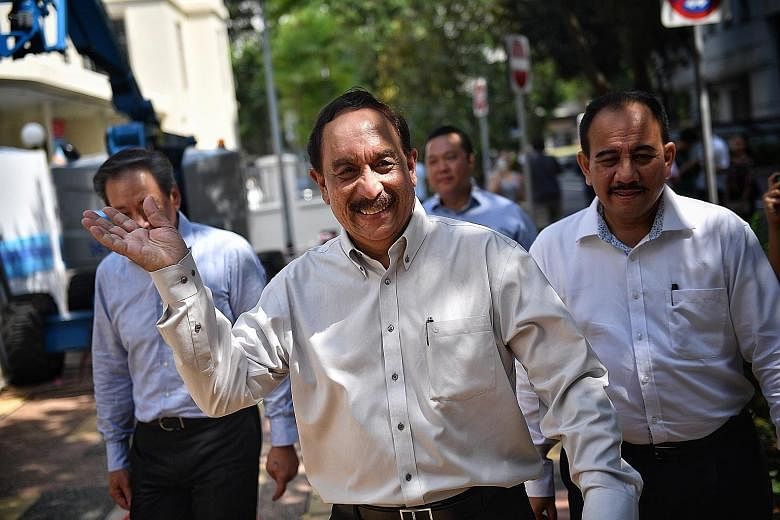Businessman Farid Khan yesterday shed light on the shareholder equity of his marine services company, and why the Presidential Elections Committee (PEC) rejected his application to run for president.
The PEC said Bourbon Offshore Asia - of which Mr Farid is chairman and regional managing director - had shareholders' equity of only between $3 million and $8 million in the past three years, in its letter of rejection that he showed The Straits Times yesterday.
In his submission, Mr Farid said he was responsible for running 18 other Asian companies in the Bourbon Group, which combined have shareholders' equity of about $249 million. But the PEC noted in its letter that these 18 Asian companies were not "direct or indirect" subsidiaries of Bourbon Offshore Asia.
The aggregation of their combined shareholders' equity "was not done in accordance with the Presidential Elections (Certificate of Eligibility) Regulations", it said.
And even taken at face value, the aggregated shareholders' equity of $249 million was "considerably below" the minimum $500 million required for private-sector candidates to qualify, the PEC said.
The committee said it rejected his application for these reasons.
Mr Farid, 61, had hoped the PEC would allow him to stand under the deliberative track - it has the discretion to do so for candidates who do not meet the qualifying criteria.
"I am disappointed but I accept the PEC's decision," he said. The decision sends a signal to future presidential hopefuls that the $500 million criterion must be met, he noted.
He also felt the PEC ought to have accepted that he was responsible for running those 18 companies, and pointed to how firms are structured differently in the marine sector.
"Bourbon Offshore Asia is the operational headquarters and it is asset light, but I am responsible for all the Asian operations," he said.
He added that the firms are structured as individual companies and not subsidiaries in order to spread out risks. "This is very common in the marine sector," he said. This practice is so that if a bank seizes a ship it is financing, other ships in the fleet are protected as they belong to other firms, he added.
Lawyer Peter Doraisamy, who specialises in maritime and shipping law, said the practice of having many smaller companies in the maritime sector is "fairly common".
There is a "one ship, one company" structure in the sector where ships are registered in the names of different companies, whose only asset is the particular ship registered in its name, he said. "This 'ring-fencing' helps in risk management."
Mr Farid was one of two contenders who did not qualify to run for election. The other was Mr Salleh Marican, chief executive of Second Chance Properties.
Mr Farid said he thought about releasing the companies' financials on Monday after the PEC announced its decision, but needed time to get approval from parent company Bourbon Offshore in France.
He spent about $200,000 of his own money on his campaign, with the bulk going to deposits for the production of campaign paraphernalia.
On his future plans, Mr Farid said he is heading to Thailand for a short holiday with his wife next week. "No more politics for me," he added with a laugh.


